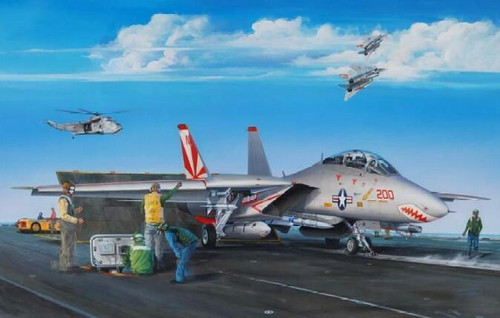Description
The P-51 was designed in 1940 at Britain's request,The prototype was constructed within a 120-day limit. It was the Royal Air Force that bestowed the nickname "Mustang" on the type. In December 1943, P-51Bs first entered combat with the 354th Fighter Group of the 9th Air Force in England. The bulk of the P-51B/C in combat status were assigned to the 8th and 9th Air Forces in England With a lesser number doing combat chores with the 12th and 15th U.S.A.A.F′s in Italy and surrounding areas. The P-51B/C was the prime variant from December 1943 until March 1944 at which time the P-51D began to appear in quantity with the 8th A.F. However, the P-51B/C remained predominant until the middle of 1944 and remained in combat till the end of the conflict. Of the 1,357,000 combat hours flown by the P-51′s in all theatres of war. . and approximately 400,000 of that quantity by the ever present B′s and C′s. General characteristics P-51B/C: Power plant:One Packard V-1650-3(license-built Rolls-Royce Merlin) Wingspan:11.28 m Length:9.83 m Height:4.16 m Wing area:21.83 sq m Weight: empty 4445 kg max.5080 kg Max. speed: 708 km/h Ceiling: 12,740 m Max. range: 2010 km.
Kit Features:
- Scale : 1/32
- Item Type : Static Aircraft
- Model Brief : Length: 308mm Wingspan: 352.5mm
- Total Parts : 356pcs
- Photo Etched Parts : 2 pcs
- Film Parts : 1 pcs
- Total Sprues : 13pcs, 3 rubber tires
- Paint Schemes : " 1) P-51B-5NA(NA.104) (43-6315),Ding Hao! Major Jim Howard, CO of 356th FS/354th FG, January 1943
2) P-51B-15NA (43-24857), 90, Sweet Clara II, 319th " - More Features : The kit consists of 322 parts in plastic with an additional 3 TPR tires, 17 clear plastic parts for canopy , 2 frets of etched parts, - clear fuselage.




























